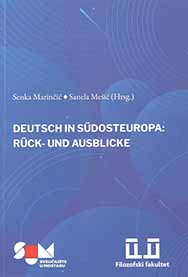Freie Relativsätze im deutsch-kroatischen Sprachvergleich
Free relative clauses in the German-Croatian language comparison
Author(s): Senka Marinčić
Subject(s): Language studies, Syntax, Comparative Linguistics, South Slavic Languages
Published by: Filozofski fakultet Sveučilišta u Mostaru
Keywords: German language; Croatian language; Free relative clauses; comparison;
Summary/Abstract: The paper deals with fused or free relative clauses, i.e. the relative clauses that have no antecedent in the matrix clause, but, nevertheless, have the clause status within the matrix clause: Gib ihm, [was er wünscht]. – Daj mu, [što želi] (Give him [what he wants]). In the matrix clause, [Gib ihm] and [Daj mu] ([Give him]), the direct object of [gib] or [daj] ([give]) is missing. The free relative clause [was er wünscht] or [što želi] ([what he wants]) becomes the direct object of the verb [gib] or [daj] ([give]). The two languages, i.e. German and Croatian, will be contrasted in the following parameters: free relative clause marker, subordinate function of free relative clause, case hierarchy of free relative clauses as well as their positional properties. The study is not corpus based, but rather a contrastive analysis of the respective parameters.
Book: DEUTSCH IN SÜDOSTEUROPA: RÜCK- UND AUSBLICKE
- Page Range: 76-96
- Page Count: 31
- Publication Year: 2020
- Language: German
- Content File-PDF

